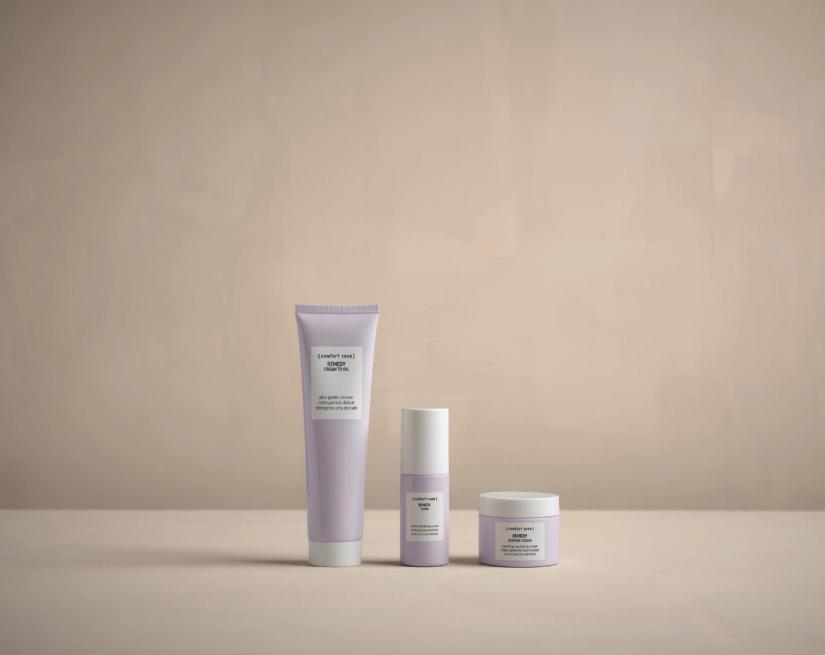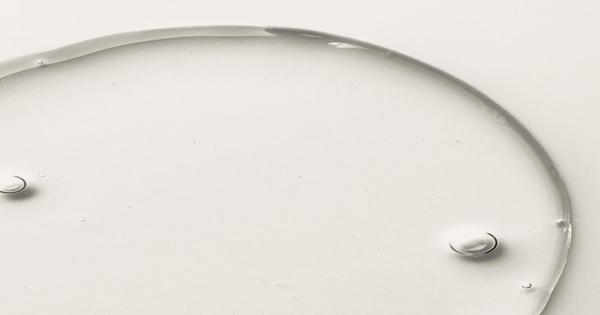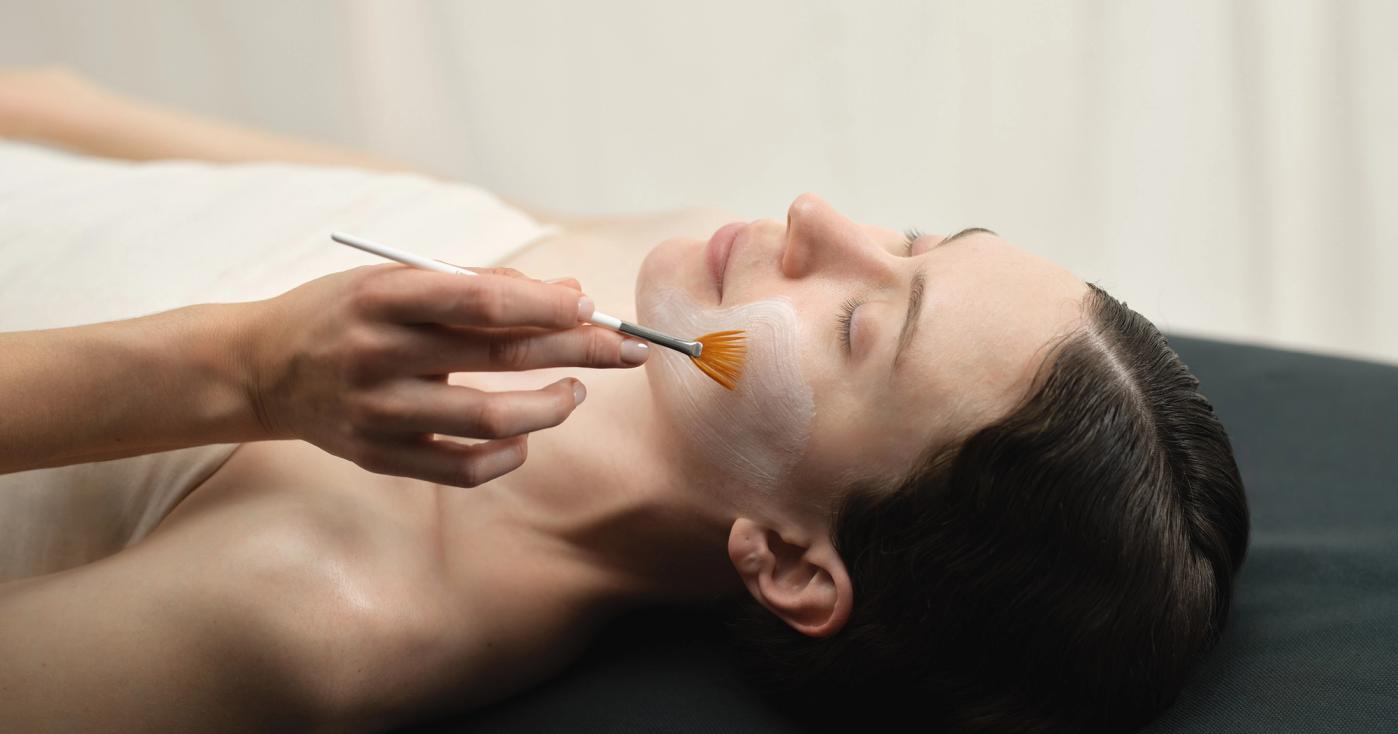Remedy Serum
Soothing fortifying serum
skin care
Maria Giulia Simonazzi | International Training Manager
10 min read

We all know the importance of moisturizing. Keeping the skin well hydrated can not only make your skin look nice (hello, dewy glow) but it can also heal and nourish the skin on a deeper level. Facial oil is one such way to keep the skin healthy, even, and hydrated. Some oils do more than just hydrate the skin, working as a double cleanser to get the skin extra clean.
There are many different types of face oils out there from jojoba to coconut oil, leading the average consumer to wonder, are they all created equal? The answer is, not exactly.
Some face oils can clog pores and leave the skin feeling oily while others offer a whole myriad of benefits for every skin type. Cue: Marula oil. This fatty acid-containing oil does a lot more than simply hydrate the skin.
Below, we’re sharing everything you need to know about marula oil, including what it is and why incorporating marula oil-containing products into your skincare routine is worth your while.
"Did you know that Marula Oil has an edible version? Marula Oil can be used as a cooking oil, for garnish, and salad dressing. It is considered luxury food and added to a wide variety of traditional and modern recipes"
Monica Poli - Skin Tech and Device Product Manager
Marula oil comes from the marula tree which is native to southern Africa. Historically, the Marula trees only grew wild and were actually quite rare. They were linked to fertility and happy marriage by some African tribes. Today, Marula trees are cultivated so they are no longer as rare as they used to be.
There are different parts of the marula tree that have been used in foods and as medicine throughout Africa for many years. Marula trees have fruit that contains a hard nut with white kernels inside. The oil itself can be extracted from these kernels or from the nut’s outer husk.
Because marula oil is absorbed easily, it works well as a skin and hair product. It is considered an emollient, meaning it soothes, softens, and adds moisture to the areas where it is applied. Marula oil softens skin by sealing in hydration.
It also has antioxidant, anti-inflammatory, and antibacterial properties that help it protect the areas where it is applied and potentially even soothe reddened areas of the skin. Pretty much anyone can use marula oil and it hasn’t been found to interact negatively with other products. However, it is ideal for people who have dry or cracked skin.
Marula oil is commonly mixed up with Argan oil. These two oils have similarities and differences. Both contain antioxidants, vitamin E, and fatty acids. All of these factors make both oils very soothing and healing for the skin. The fatty acids found in both oils are oleic acid and linoleic acid. Marula oil has a higher concentration of oleic acid, making it deeply moisturizing. Another difference is that marula oil contains vitamin C, while argan oil does not. Argan oil is more often recommended for acne-prone skin while marula oil is recommended for aging or sun-damaged skin.
Marula oil has a light texture and rich moisture, making it ideal for use on hair, skin, and nails. You may find marula oil as an ingredient in certain cosmetic and skin care products, such as creams and serums. Marula oil can also be purchased on its own as an oil.
The components of marula oil that make it beneficial include:
The hydrating and healing properties of marula oil can be applied to more than just the skin on your face (although, this is a great way to use it). Marula oil can also be used on hair and nails as well.

Benefits of using marula oil on the face include:
There are many ways that you can use marula oil on your face. You can purchase products that contain marula oil or go get a spa treatment that uses marula oil-containing products. Some people opt to use the oil on its own or to use it in the form of a cream or serum that contains marula oil as an ingredient.
Marula oil can also be used to hydrate and nourish the hair. It is beneficial since it adds moisture to the hair without being overly greasy. It is beneficial for dry and frizzy hair because of its occlusive properties that prevent water loss.
Some other benefits of using marula oil in your hair include:
The hydrating and healing properties of marula oil can be applied to more than just the skin on your face (although, this is a great way to use it). Marula oil can also be used on hair and nails as well.
Marula oil can also be applied to the fingernails. It helps to keep the nail beds and cuticles hydrated and healthy. Applying marula oil to your nails regularly might help to boost the health of the nails and prevent hangnails as well as cracked skin.
From hair and skin products that contain marula oil as an ingredient to using the oil on its own, there are a number of different ways to incorporate this powerful ingredient into your beauty and wellness routine.

Marula oil can also be applied to the face and body. Use it on its own or mixed in with lotion. It works really well on dry or cracked skin as a daily moisturizer. You can apply it at night or in the morning. It absorbs into the skin well so it’s okay to apply it before applying makeup or other products to your skin. Marula oil is a great treatment for particularly dry areas of the skin, such as the elbows or knees.
There are some shampoos and conditioners that are made with marula oil added to it. Check the ingredient labels when shopping for shampoo to find one that contains the hydrating ingredient. If you already have a shampoo that you love, simply purchase some pure marula oil and add a few drops to it before you wash your hair. You can also try adding marula oil to your hair before washing it as a pre-shampoo treatment.Marula oil can also be used to condition the hair and scalp. It works well to help nourish split ends and it can help with dryness and dandruff on the scalp. Simply massage it into the end of the hair or scalp, depending on what your needs are. It works well as an anti-frizz treatment when applied to the hair after washing.
There are no specific side effects to using marula oil. However, if you have a nut allergy you could potentially have an allergic reaction. Always use marula oil externally and avoid getting it in your eyes. If you’re worried about how your skin might react to marula oil, try applying a few drops to a small area of your skin before using it, this is called a patch test. Look for any signs of irritation, such as redness, swelling, hives, or itching.
How to properly perform a patch test:

Marula oil is one of the latest and greatest skincare ingredients. It can be used on the face, body, hair, and even nails for replenishment and moisture. This versatile and nourishing oil can be used with other products with a very low chance of negative side effects. Just about anyone (with any skin type) can benefit from Marula oil. Incorporate this ingredient into your routine with a marula oil serum–you won’t regret it.
Soothing fortifying serum
Ultra gentle cleanser
Soothing hydrating cream
Soothing nourishing cream